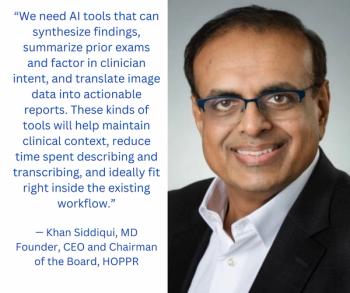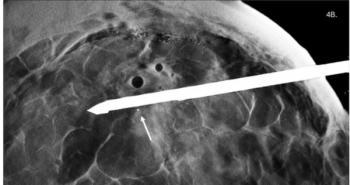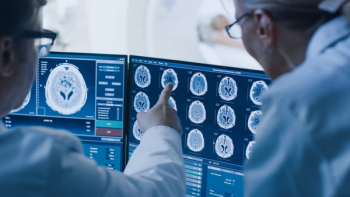
Using AI Can Help Diagnose Tuberculosis on a Smartphone
Applying a deep-learning model to a photograph of a chest X-ray can help providers in resource-poor areas diagnose the disease.
A photo of a chest X-ray captured by a smartphone can be enough for providers to diagnose tuberculosis (TB), according to new research.
In a poster presented during this year’s Radiological Society of North America (RSNA) annual meeting, researchers from National Tsing Hua University in Taiwan explained how using a deep-learning TB detection model with those smartphone pictures can impact diagnosis of the disease. This is the first study to pair a deep learning model with a smartphone for this purpose.
This method is critical, said lead study author Po-Chih Kuo, Ph.D., assistant professor of computer science, because early TB diagnosis has historically been difficult in resource-poor countries where radiologists and high-resolution images are not always available. By deploying the algorithm – called TBShoNet – in a smartphone, providers will be better equipped to make a diagnosis on their own.
“We need to extend the opportunities around medical artificial intelligence to resource-limited settings,” Kuo said.
Kuo’s team used a database of 250,044 chest X-rays with 14 pulmonary labels that did not include TB to pre-train the neural network. They, then, recalibrated the model for chest X-ray photographs, using simulation methods to augment the dataset. Adding an additional two-layer neural network that was trained on augmented chest X-ray images to the pre-trained model completed TBShoNet.
To test TBShoNet, Kuo’s team took 662 chest X-ray photographs – 336 TB and 326 normal – with five different smartphones. According to their analysis, the model produced 81 percent sensitivity and 84 percent specificity for TB classification.
Newsletter
Stay at the forefront of radiology with the Diagnostic Imaging newsletter, delivering the latest news, clinical insights, and imaging advancements for today’s radiologists.













